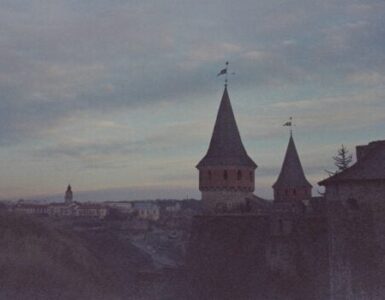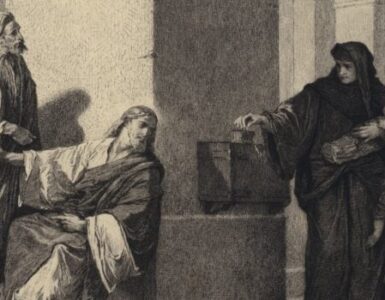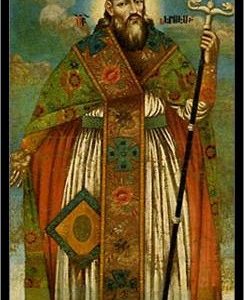“You have died, and your life is hidden with Christ in God. When Christ who is our life appears, then you also will appear with him in glory.”
(Col. 3:3-4)
You have died: to what? To sin. You have died to it by baptism, by repentance, and by the profession of a Christian life. You have died to sin, but how then can “we who died to sin still live in it?” (Rom. 6:2). We must die to it once and for all.
In order to die to sin completely, it is necessary that we die to all of our bad inclinations, to all that flatters our senses, and to pride. For all these things the Scriptures call sin, because they come from sin, because they incline to sin, and because they do not allow us to be entirely free from sin.
“You have died.” When shall these words of St. Paul be accomplished in us? At what blessed moment of our lives? When shall we be without sin? Never in the course of this life. To whom, then, is St. Paul speaking when he says, “You have died”? Is it to the souls of the just? Are they dead? Are they not, on the contrary, in the land of the living? It cannot be to them that St. Paul speaks; it is to us. The concupiscence of evil remains in us, and we must fight against it our entire lives. But we hold it fast, pinned to the ground. We hold it, but have we vanquished it? We ought to. We can, with the grace of God. And if during the struggle it deals some injury to us, we shall not cease groaning, nor humbling ourselves, saying with St. Paul, “Who will deliver me from this body of death?” (Rom. 7:24). You have been delivered, Christian soul: you have been delivered in hope.
“And your life is hidden.” Our death, then, is not total. St. Paul explains: “If Christ is in you, although your bodies are dead because of sin,” that is, the sin that once reigned in them and which has left behind its traces, “your spirits are alive because of righteousness,” the righteousness that charity pours out into our hearts (Rom. 8:10). It is with respect to the life of Christian righteousness that St. Paul says, “and your life is hidden.” Set free from human judgment, we should count as true only what God sees in us, what he knows, and what he judges. God does not judge as man does. Man sees only the countenance, only the exterior. God penetrates to the depths of our hearts. God does not change as man does. His judgment is in no way inconstant. He is the only one upon whom we should rely. How happy we are then, and how peaceful! We are no longer dazzled by appearances, or stirred up by opinions; we are united to the truth and depend upon it alone.
I am praised, blamed, treated with indifference, disdained, ignored, or forgotten; none of this can touch me. I will be no less than I am. Men and women want to play at being a creator. They want to give me existence in their opinion, but this existence that they want to give me is nothingness. It is an illusion, a shadow, an appearance, that is, at bottom, nothingness. What is this shadow, always following me, behind me, at my side? Is it me, or something that belongs to me? No. Yet does not this shadow seem to move with me? No matter: it is not me. So it is with the judgments of men: they would follow me everywhere, paint me, sketch me, make me move according to their whim, and, in the end, give me some sort of existence. But in the end, I know it well: this is only a flickering light that takes me from one side or the other, that lengthens, shortens, swells, or shrinks the shadow that follows me, that makes it appear in various ways and disappear without my gaining or losing anything of my own. And what is this image of myself that I see reflected in the flowing stream? It blurs and erases itself; it disappears when the water is stirred up, but what have I lost? Nothing but a useless amusement. So it is with the opinions and judgments men form according to their lights. Alas, not only do I amuse myself with them as with a game; I stop, and I take them for something serious and true, and this shadow, this fragile image troubles me and makes me anxious, and I believe myself to be losing something. But I am disabused of this error. I am content with a hidden life. How peaceful it is! Whether I truly live this Christian life of which St. Paul speaks, I do not know, nor can I know with certainty. But I hope that I do, and I trust in God’s goodness to help me.
✠
This article is adapted from today’s meditation in Bishop Bossuet Meditations for Lent. The book is available as an ebook or leatherette from Sophia Institute Press and your local Catholic bookstores.
Photo by Fabrizio Verrecchia on Unsplash












